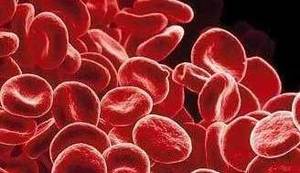In the modern era, our fast-paced lifestyles often lead to a surplus of fats in our diets because of the widespread consumption of processed and fast foods. Although fats are necessary for our nutritional needs and supply energy, certain kinds and excessive quantities can harm our well-being.
We explore the harmful effects of excess intake of fats, reminding us of the importance of maintaining a balanced diet.
Increased Body Weight
Overconsumption of fats can result in an increase in body weight and the development of obesity. Fats are highly caloric, with more than twice the amount of calories per gram compared to carbohydrates or proteins. When consumed in excessive amounts, the body stores these additional calories as fat, which ultimately leads to undesirable weight gain.
Cardiovascular Problems
High intake of unhealthy fats, particularly saturated and trans fats, increases the risk of cardiovascular diseases. These fats raise cholesterol levels in the blood, contributing to the development of plaque in the arteries. This can lead to conditions such as atherosclerosis, heart attacks, and strokes.
Impaired Brain Function
A diet high in unhealthy fats may negatively impact brain health. Excessive intake of saturated and trans fats has been linked to cognitive decline, memory problems, and a higher risk of developing neurodegenerative disorders such as Alzheimer’s disease.
Liver Dysfunction
Consuming excessive amounts of fats, especially saturated fats, can strain the liver. The liver is responsible for breaking down fats, and when overloaded with too much fat, it can become inflamed and develop non-alcoholic fatty liver disease (NAFLD). NAFLD can progress to more severe liver conditions like cirrhosis or liver failure.
Increased Risk of Type 2 Diabetes
Consuming diets that are high in unhealthy fats has been linked to a higher likelihood of developing type 2 diabetes. These fats hinder the ability of insulin to function effectively, making it more challenging for cells to respond appropriately to insulin, and resulting in elevated levels of sugar in the bloodstream.
Reduced Nutrient Absorption
Excess fats may interfere with the absorption of essential nutrients like vitamins and minerals. Since fats slow down digestion, excessive fat consumption can reduce the absorption of nutrients, potentially leading to deficiencies and weakened immune function.
Negative Impact on Mental Health
According to studies, consuming a diet that is rich in unhealthy fats could potentially raise the chances of developing mental health problems such as depression and anxiety. The inflammation triggered by consuming excessive amounts of fat can impact brain chemicals and the way neurotransmitters function, leading to emotional imbalances.
Conclusion
While fats play important roles in our bodies, it is crucial to follow a well-rounded diet that limits the intake of unhealthy fats. To promote good health and decrease the chances of health issues, it is beneficial to include nutritious fats like omega-3 fatty acids in our meals and incorporate whole foods into our eating habits. Consuming excessive amounts of fats, particularly saturated and trans fats, can have detrimental effects on our overall well-being.









